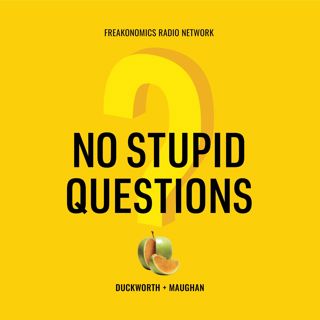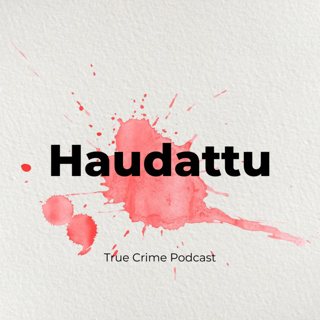
Why Do People Get Scammed? (Replay)
What makes a con succeed? Does snake oil actually work? And just how gullible is Angela? SOURCES:Robert Cialdini, professor emeritus of psychology and marketing at Arizona State University.Yaniv Hanoch, professor of decision sciences at Coventry University.Hugo Mercier, research scientist at the French National Centre for Scientific Research.George Parker, 19-20th century American con artist.Clark Stanley, 19th century American herbalist and quack doctor.William Thompson, 19th century American criminal and con artist.Danny Wallace, British filmmaker, comedian, writer, and actor.Stacey Wood, professor of psychology at Scripps College. RESOURCES:"They Thought Loved Ones Were Calling for Help. It Was an A.I. Scam," by Pranshu Verma (The Washington Post, 2023)."Who Experiences Scams? A Story for All Ages," by the Federal Trade Commission (2022)."The Scams Among Us: Who Falls Prey and Why," by Yaniv Hanoch and Stacey Wood (Current Directions in Psychological Science, 2021)."The Nigerian Prince Scam Is Still Fooling People. Here’s Why," by Eleanor Cummins (Popular Science, 2020)."How Gullible Are We? A Review of the Evidence From Psychology and Social Science," by Hugo Mercier (Review of General Psychology, 2017)."The Man Who Sold the Eiffel Tower. Twice," by Jeff Maysh (Smithsonian Magazine, 2016)."Why Your Brain Loves Good Storytelling," by Paul J. Zak (Harvard Business Review, 2014)."A History Of 'Snake Oil Salesmen,'" by Lakshmi Gandhi (Code Switch, 2013).Yes Man, by Danny Wallace (2005)."For You, Half Price," by Gabriel Cohen (The New York Times, 2005).Influence, by Robert Cialdini (1984)."Arrest of the Confidence Man," (New York Herald, 1849). EXTRAS:"Are N.F.T.s All Scams?" by Freakonomics Radio (2022)."Trust Me," by Freakonomics Radio (2016). Hosted by Simplecast, an AdsWizz company. See pcm.adswizz.com for information about our collection and use of personal data for advertising.
11 Elo 202435min

206. When Is It Time to Step Aside?
Should government jobs have mandatory retirement ages? Is it foolish to care about your legacy? And why did Jason always call Angela’s father “Dr. Lee”? SOURCES:William Bridges, professor emeritus of American literature at Mills College, consultant, and author.Arthur Brooks, professor of leadership at Harvard University.Jimmy Carter, former President of the United States and founder of the Carter Center.Erik Erikson, 20th-century psychoanalyst.Craig Fox, professor of management at the University of California, Los Angeles.Daniel Kahneman, professor emeritus of psychology and public affairs at Princeton University.Mitt Romney, U.S. Senator from Utah. RESOURCES:"Congress Today Is Older Than It's Ever Been," by Geoffrey Skelley (FiveThirtyEight, 2023)."America’s Bosses Just Won’t Quit. That Could Spell Trouble," (The Economist, 2023)."At What Age Is Your Brain the Sharpest?" by Kendra Cherry (Verywell Mind, 2023)."Mitt Romney Announces He Won’t Seek Reelection as He Calls for ‘New Generation of Leaders’," by Clare Foran (CNN, 2023).From Strength to Strength: Finding Success, Happiness, and Deep Purpose in the Second Half of Life, by Arthur Brooks (2022)."Psychological Research on Retirement," by Mo Wang and Junqi Shi (Annual Review of Psychology, 2014)."Daniel Kahneman in Conversation with Craig Fox," (2004)."The Psychology of Life Stories," by Dan P. McAdams (Review of General Psychology, 2001).Childhood and Society, by Erik Erikson (1950).Bridges Transition Model. EXTRA:"Personality: The Big Five," series by No Stupid Questions (2024)."What Does Success Look Like?" by No Stupid Questions (2024)."How Do You Deal With Big Life Changes?" by No Stupid Questions (2023)."What’s So Great About Retirement?" by No Stupid Questions (2022)."I Know Him," song by Jonathan Groff (Hamilton: An American Musical, 2015). Hosted by Simplecast, an AdsWizz company. See pcm.adswizz.com for information about our collection and use of personal data for advertising.
4 Elo 202438min

205. Where Do Values Come From?
Do you get your principles from your parents — or in spite of them? Is there anything wrong with valuing conformity? And why doesn’t McDonald’s sell salads? SOURCES:Erika James, dean of the Wharton School of Business at the University of Pennsylvania.Olivia Rodrigo, singer-songwriter.Shalom Schwartz, professor emeritus of psychology at the Hebrew University of Jerusalem.Thomas Talhelm, professor of behavioral science at the University of Chicago Booth School of Business. RESOURCES:"Measuring Trends in Americans' Personal Values," by Frank Newport (Gallup, 2023)."America Pulls Back From Values That Once Defined It, WSJ-NORC Poll Finds," by Aaron Zitner (The Wall Street Journal, 2023)."What Really Happened To McDonald's McSalad Shakers," by Colin McCandless (Mashed, 2023)."Personal Values Across Cultures," by Lilach Sagiv and Shalom H. Schwartz (Annual Review of Psychology, 2022)."Moving Chairs in Starbucks: Observational Studies Find Rice-Wheat Cultural Differences in Daily Life in China," by Thomas Talhelm, Xuemin Zhang, and Shigehiro Oishi (Science Advances, 2018)."Large-Scale Psychological Differences Within China Explained by Rice Versus Wheat Agriculture," by Thomas Talhelm, Xuemin Zhang, Shigehiro Oishi, Shinobu Kitayama, et al. (Science, 2014)."An Overview of the Schwartz Theory of Basic Values," by Shalom Schwartz (Online Readings in Psychology and Culture, 2012).The Short Schwartz’s Value Survey, from "Measuring values with the Short Schwartz's Value Survey," by Marjaana Lindeman and Markku Verkasalo (Journal of Personality Assessment, 2005). EXTRAS:"Should You Get Out of Your Comfort Zone?" by No Stupid Questions (2024)."How Sinful Are 'No Stupid Questions' Listeners?" by No Stupid Questions (2023)."hope ur ok," song by Olivia Rodrigo (Sour, 2021). Hosted by Simplecast, an AdsWizz company. See pcm.adswizz.com for information about our collection and use of personal data for advertising.
28 Heinä 202441min

204. What Happens When You’re Cut Off From All Human Contact?
How is the brain affected by solitary confinement? How would you deal with being stranded on a deserted island? And do baby monkeys make the best therapists? SOURCES:William Broyles Jr., screenwriter, journalism, and former U.S. Marine Corps officer.Beatriz Flamini, Spanish mountaineer.Craig Haney, professor of psychology at the University of California Santa Cruz.Harry Harlow, 20th-century American psychologist.Sarah Hepola, author.Nelson Mandela, former president of South Africa.Tree Meinch, freelance writer, editor, and freediver.Alexander Selkirk, 18th-century Scottish privateer and Royal Navy officer.Cheryl Strayed, writer and podcast host. RESOURCES:"The Impact of Isolation on Brain Health," by Vibol Heng, Craig Haney, and Richard Jay Smeyne (Neurobiology of Brain Disorders, 2023)."What Happens When Humans Are Extremely Isolated?" by Tree Meinch (Discover, 2023)."Spanish Climber Leaves Cave After 500 Days in Isolation," by Ciarán Giles (AP News, 2023)."Solitary Confinement Is Not 'Solitude': The Worst Case Scenario of Being 'Alone' in Prison," by Craig Haney (The Handbook of Solitude, 2021).This Tender Land, by William Kent Krueger (2019).Wild: From Lost to Found on the Pacific Crest Trail, by Cheryl Strayed (2012)."The Real Robinson Crusoe," by Bruce Selcraig (Smithsonian Magazine, 2005)."Lost at Sea and Back Again," by Sarah Hepola (The Austin Chronicle, 2000)."Social Recovery of Monkeys Isolated for the First Year of Life: I. Rehabilitation and Therapy," by Melinda Novak and Harry Harlow (Developmental Psychology, 1975). EXTRAS:"Do You Need a Hug?" by No Stupid Questions (2024)."What Makes a Good Gathering?" by No Stupid Questions (2024)."What to Do When Everything Looks Like a Catastrophe?" by No Stupid Questions (2022).Cast Away, film (2000). Hosted by Simplecast, an AdsWizz company. See pcm.adswizz.com for information about our collection and use of personal data for advertising.
21 Heinä 202440min

203. Do You Need a Hug?
Do humans need touch to survive? Do any of us get enough touch throughout our lives? And why doesn’t Angela want to hug anyone for eight seconds? SOURCES:Ophelia Deroy, chair of the department of philosophy of mind and cognitive neuroscience at Ludwig Maximilian University of Munich.Kory Floyd, professor of communications at the University of Arizona.Harry Harlow, 20th-century American psychologist.Sirin Kale, associate editor at Vice.Christy Kane, clinical mental health counselor.Carmen Rasmusen Herbert, country music artist and columnist.Virginia Satir, 20th-century clinical social worker and family therapist. RESOURCES:"A Systematic Review and Multivariate Meta-Analysis of the Physical and Mental Health Benefits of Touch Interventions," by Julian Packheiser, Helena Hartmann, Kelly Fredriksen, Valeria Gazzola, Christian Keysers, and Frédéric Michon (Nature Human Behaviour, 2024)."WHO Advises Immediate Skin to Skin Care for Survival of Small and Preterm Babies," by the World Health Organization (2022)."Affective Interpersonal Touch in Close Relationships: A Cross-Cultural Perspective," by Agnieszka Sorokowska, Supreet Saluja, Ilona Croy, et al. (Personality and Social Psychology Bulletin, 2021)."Results Revealed for The Touch Test: The World’s Largest Study of Touch," (BBC Media Centre, 2020)."How 8-Second Hugs Can Counteract the Negative Side Effects From Electronics," by Carmen Rasmusen Herbert (Deseret News, 2018)."Confidence is Higher in Touch Than in Vision in Cases of Perceptual Ambiguity," by Merle T. Fairhurst, Eoin Travers, Vincent Hayward, and Ophelia Deroy (Nature: Scientific Reports, 2018)."The Life of the Skin-Hungry: Can You Go Crazy from a Lack Of Touch?" by Sirin Kale (Vice, 2016)."Warm Partner Contact Is Related to Lower Cardiovascular Reactivity," by Karen M. Grewen, Bobbi J. Anderson, Susan S. Girdler, and Kathleen C. Light (Behavioral Medicine, 2010)."The Nature of Love," by Harry Harlow (American Psychologist, 1958). EXTRAS:"Did Covid-19 Kill the Handshake?" by No Stupid Questions (2020). Hosted by Simplecast, an AdsWizz company. See pcm.adswizz.com for information about our collection and use of personal data for advertising.
14 Heinä 202439min

How Effective Are Ultimatums? (Replay)
How final is a final offer, really? Does anonymity turn nice people into jerks? And should you tell your crush that you dreamed about marrying them? SOURCES:Max Bazerman, professor of business administration at Harvard Business School.Deepak Malhotra, professor of business administration at Harvard Business School.Elon Musk, owner and C.T.O. of X Corp (formerly Twitter), C.E.O. of Space X, and C.E.O. of Tesla.John Krasinski, actor and filmmaker. RESOURCES:"Elon Musk Says Twitter Will Try to Rehire Some of Its Laid-Off Staff, and That Some of the People He Fired 'Shouldn't Have Been' Cut," by Pete Syme (Business Insider, 2023)."Read the Midnight Email Elon Musk Sent Twitter Staff Telling Them to Work 'Long Hours at High Intensity' – or Quit," by Jyoti Mann (Business Insider, 2022)."When to Use Ultimatums & When to Avoid Them," by Deepak Malhotra (Negotiation Insights Video Series, 2020)."'Take It or Leave It!' A Choice Mindset Leads to Greater Persistence and Better Outcomes in Negotiations," by Anyi Ma, Yu Yang, and Krishna Savani (Organizational Behavior and Human Decision Processes, 2019)."John Krasinski Was Ready To Quit Acting Before 'The Office'," by The Late Show with Stephen Colbert (2018)."Models of the Evolution of Fairness in the Ultimatum Game: A Review and Classification," by Stéphane Debove, Nicolas Baumard, and Jean-Baptiste André (Evolution and Human Behavior, 2016)."15 Rules for Negotiating a Job Offer," by Deepak Malhotra (Harvard Business Review, 2014).Negotiation Genius: How to Overcome Obstacles and Achieve Brilliant Results at the Bargaining Table and Beyond, by Deepak Malhotra and Max Bazerman (2007)."Fairness Versus Reason in the Ultimatum Game," by Martin A. Nowak, Karen M. Page, and Karl Sigmund (Science, 2000). EXTRAS:"Get Your Share of the Pie," by People I (Mostly) Admire (2022).Mrs. Miracle, by Debbie Macomber (1996). Hosted by Simplecast, an AdsWizz company. See pcm.adswizz.com for information about our collection and use of personal data for advertising.
7 Heinä 202436min

202. Why Can’t We Tolerate Discomfort?
Are we using technology to make ourselves numb? What’s the downside of air conditioning? And was Angela the most annoying person in her college classes? SOURCES:Paul Bloom, professor of psychology at the University of Toronto.Ed Diener, professor emeritus at the University of Illinois.Michael Easter, author.Alex Hutchinson, journalist.Shigehiro Oishi, professor of psychology at the University of Chicago.Taylor Swift, singer-songwriter. RESOURCES:"World Happiness Report," (Gallup, 2024)."How Painful Should Your Workout Be?" by Alex Hutchinson (The New York Times, 2022)."Taylor Swift’s NYU Commencement Speech: Read the Full Transcript," by Hannah Dailey (Billboard, 2022).The Comfort Crisis: Embrace Discomfort to Reclaim Your Wild, Happy, Healthy Self, by Michael Easter (2021).The Sweet Spot: The Pleasures of Suffering and the Search for Meaning, by Paul Bloom (2021)."Residents of Poor Nations Have a Greater Sense of Meaning in Life Than Residents of Wealthy Nations," by Shigehiro Oishi and Ed Diener (Psychological Science, 2014)."Confusion Can Be Beneficial for Learning," by Sidney D’Mello, Blair Lehman, Reinhard Pekrun, and Art Graesser (Learning and Instruction, 2014)."Stranger Situations: Examining a Self-Regulatory Model of Socially Awkward Encounters," by Joshua Clegg (Group Processes & Intergroup Relations, 2012). EXTRAS:"Should You Get Out of Your Comfort Zone?" by No Stupid Questions (2024). Hosted by Simplecast, an AdsWizz company. See pcm.adswizz.com for information about our collection and use of personal data for advertising.
30 Kesä 202440min

201. Are You Dreaming Too Big?
Are fantasies helpful or harmful? How is daydreaming like a drug? And what did Angela fantasize about during ninth-grade English class? SOURCES:Patrick Bet-David, YouTuber and founding C.E.O. of PHP Agency Inc.Barbara Corcoran, "Shark" and executive producer on ABC’s Shark Tank and founder of The Corcoran Group.Peter Gollwitzer, professor of psychology at New York University.Danny Kahneman, professor emeritus of psychology at Princeton University.Robert Nozick, philosopher.Gabriele Oettingen, professor of psychology at New York University.Kim Scott, co-founder of Radical Candor and prominent C.E.O. coach in Silicon Valley. RESOURCES:"Dreamscrolling," by Empower (The Currency, 2024)."Most Americans Can’t Afford a $1,000 Emergency: Survey," by Travis Schlepp (The Hill, 2024)."Positive Fantasies and Negative Emotions in Soccer Fans," by A. Timur Sevincer, Greta Wagner, and Gabriele Oettingen (Cognition and Emotion, 2019).Radical Candor: Be a Kick-Ass Boss Without Losing Your Humanity, by Kim Scott (2017)."Pleasure Now, Pain Later: Positive Fantasies About the Future Predict Symptoms of Depression," by Gabriele Oettingen, Doris Mayer, and Sam Portnow (Psychological Science, 2016)."Positive Fantasies About Idealized Futures Sap Energy," by Heather Barry Kappes and Gabriele Oettingen (Journal of Experimental Social Psychology, 2011)."Self-Regulation of Goal Setting: Turning Free Fantasies About the Future Into Binding Goals," by Gabriele Oettingen, Hyeon-ju Pak, and Karoline Schnetter (Journal of Personality and Social Psychology, 2001)."Intuitive Prediction: Biases and Corrective Procedures," by Daniel Kahneman and Amos Tversky (DARPA Technical Report, 1977).Anarchy, State, and Utopia, by Robert Nozick (1974). EXTRAS:"Can You Really 'Manifest' Success Through Positive Visualization?" by No Stupid Questions (2024). Hosted by Simplecast, an AdsWizz company. See pcm.adswizz.com for information about our collection and use of personal data for advertising.
23 Kesä 202441min





















